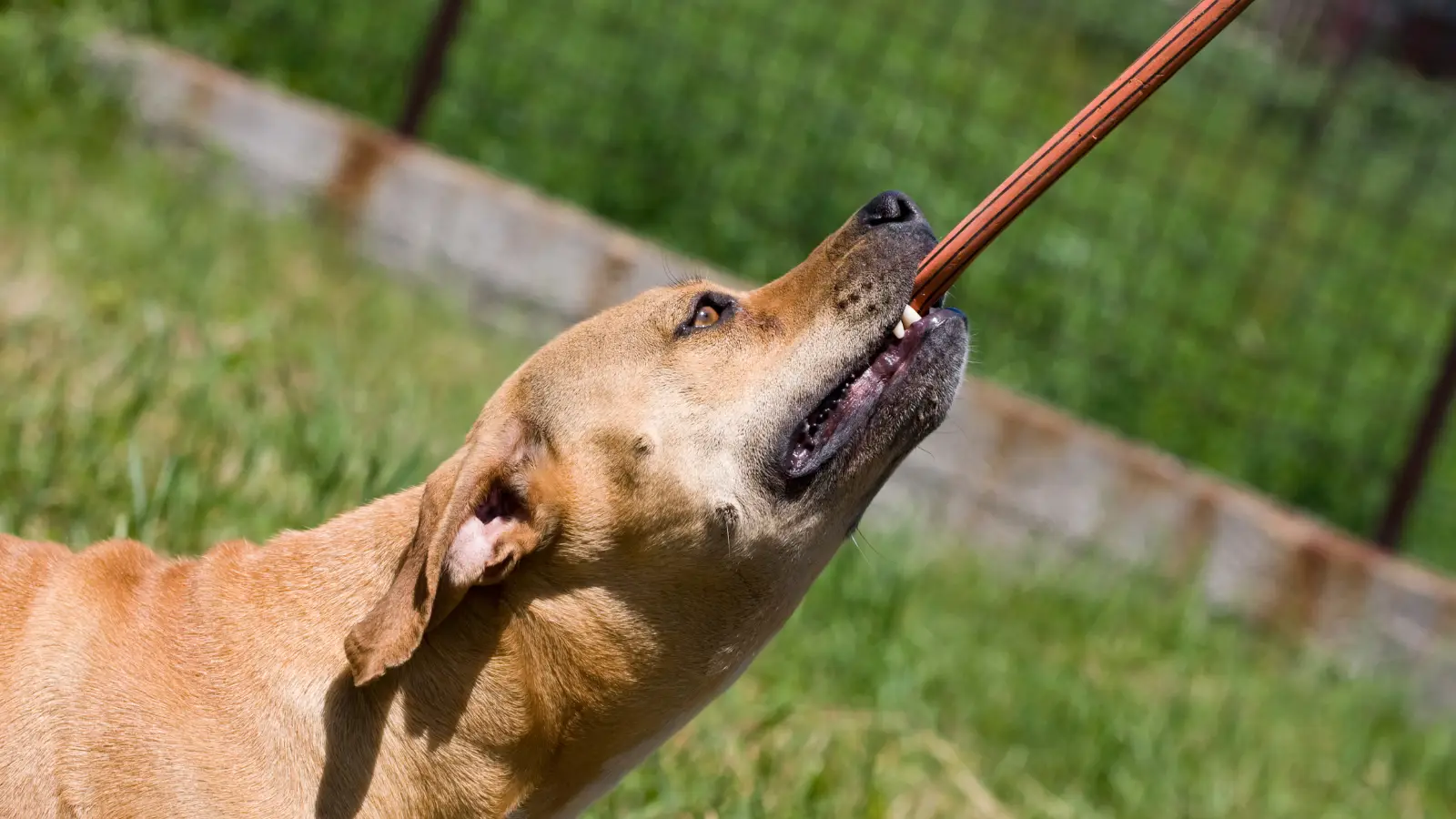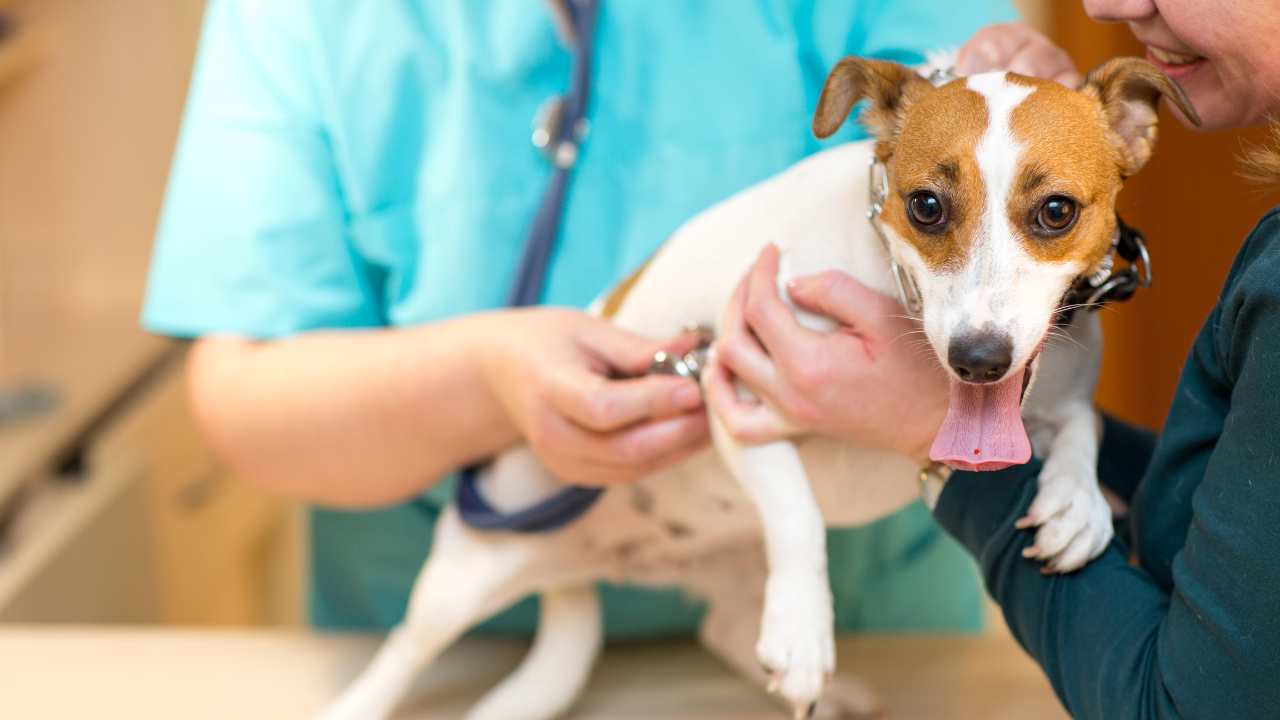
How To Stop Dog From Licking Paws: Home Remedy
If you’re here, you’ve probably noticed your dog licking their paws repeatedly. It might seem small initially, but it can make you feel worried or confused when it happens often. I’ve been there too, and I know how hard it is to watch your furry friend struggle.
Dogs lick their paws for many reasons. Sometimes it’s because of dry skin, allergies, minor cuts, or stress. But if the licking doesn’t stop, it can lead to more serious problems like redness, swelling, or infection.
The good news? You don’t always need expensive treatments to help your dog feel better. In this guide, I’ll share safe, natural home remedies many dog owners (including me!) have used to stop paw licking. These tips are simple, gentle, and can help.
I’ve also added expert advice from vets, quotes from dog trainers, and real stories from pet owners who fixed this problem at home. And don’t worry—we’ll also talk about when it’s time to see a vet, just to be safe.
Let’s work together to help your dog feel better—because they deserve to be happy, healthy, and paw-licking free!
Why Do Dogs Lick Their Paws Excessively?
Dogs often lick their paws as a part of their grooming routine. However, when this behavior becomes frequent or intense, it might indicate an underlying issue. Here are some common reasons:
1. Allergies
Dogs can develop allergies to environmental factors like pollen, dust mites, or certain foods. These allergies often manifest as itchy skin, leading to excessive paw licking.
2. Parasites
Fleas, ticks, or mites can cause significant discomfort, prompting dogs to lick or chew their paws to alleviate the irritation.
3. Injuries
Minor cuts, splinters, or insect bites on the paws can lead to persistent licking as dogs try to soothe the affected area.
4. Behavioral Issues
Stress, anxiety, or boredom can result in repetitive behaviors like paw licking. This is often a coping mechanism for dogs dealing with emotional distress.
5. Dry or Cracked Paws
Exposure to harsh weather conditions or walking on rough surfaces can cause a dog’s paw pads to dry or crack, leading to discomfort and subsequent licking.
How to Stop Dog from Licking Paws – Home Remedies That Work?
Now that we know why dogs lick their paws too much, let’s discuss safe and easy home remedies you can try immediately. These natural methods are gentle and affordable, and many pet parents (including me!) have seen great results.
1. Soak Paws in Epsom Salt Water
Why it helps: Epsom salt has natural healing powers. It reduces swelling, soothes itchy skin, and helps clean tiny wounds.
How to do it:
- Mix one tablespoon of Epsom salt into warm water in a small tub or bowl.
- Soak your dog’s paws for 5–10 minutes.
- Pat dry with a clean towel.
Case Study: Emily, a dog mom from Texas, used Epsom soaks daily for her Labrador’s itchy paws. “In just 3 days, the licking stopped!” she shared on a dog forum.
2. Apply Coconut Oil
Why it helps: Coconut oil is antibacterial, antifungal, and moisturizing. It’s safe if your dog licks it a little, too!
How to use:
- Rub some virgin coconut oil directly on your dog’s paw pads.
- Do it once or twice daily.
Expert Note: Dr. Lisa Newman, a holistic vet, says, “Coconut oil helps restore moisture and fights minor paw infections naturally.”
3. Use Raw Honey (for dry, cracked paws)
Why it helps: Raw honey is soothing, healing, and fights bacteria. It’s like a natural band-aid!
How to use:
- Gently dab a little raw honey on the affected area.
- Wrap the paw with a soft sock for 15–20 minutes if needed to avoid licking.
4. Wipe Paws After Walks
Why it helps: Dirt, pollen, and chemicals from the street can irritate your dog’s skin.
Simple routine:
- Keep dog-safe paw wipes or a damp cloth near your door.
- Gently clean each paw after walks, especially during allergy season.
5. Use Chamomile or Green Tea Soaks
Why it helps: Chamomile and green tea are known for calming irritated skin.
How to do it:
- Brew 2–3 tea bags in hot water, let them cool down.
- Soak your dog’s paws for 5–10 minutes.
- Dry well after soaking.
6. Give Your Dog Mental and Physical Exercise
Why it helps: Some dogs lick their paws out of boredom or stress.
Tips:
- Try interactive toys like treat puzzles.
- Go for daily walks or play fetch in the yard.
- Practice basic obedience training to keep their mind busy.
Testimonial: “After adding more playtime, I noticed Bella licked her paws way less,” shared a pet owner on Reddit.
When Should You Take Your Dog to the Vet?
While home remedies can work wonders, there are times when a vet visit is the best and safest choice. Something more serious could happen if your dog keeps licking their paws even after trying natural treatments.
Here are the signs you should not ignore:
1. Red, Swollen, or Bleeding Paws
If your dog’s paws look very red and swollen, or if there’s bleeding, it might be an infection or injury that needs medical care.
2. Pus or Bad Smell
A strong odor or pus from your dog’s paw can mean a bacterial or yeast infection. These usually need vet-prescribed medicine.
3. Constant or Worsening Licking
If your dog is licking nonstop, even after you’ve tried natural remedies, it’s time to check in with the vet. There could be allergies, parasites, or pain that home remedies can’t solve.
4. Limping or Difficulty Walking
If your dog avoids using a paw, limps, or seems in pain, it may have a sprain, fracture, or deeper injury that needs an X-ray.
What Vets Say
Dr. Marty Becker, veterinarian and author:
“Paw licking isn’t always simple. It can be the tip of the iceberg for bigger health problems, especially chronic or painful.”
Real Dog Owner Story
“I thought it was just dry paws, but the vet found a piece of glass stuck in the pad. So glad I took her in.” – Julie M., dog mom from Ohio.
Pro Tip:
Don’t wait too long. If your gut tells you something is off, trust it—your dog depends on you to notice when things aren’t right.
How to Stop dog from licking paws in the Future?
Once your dog feels better, you’ll want to ensure the paw licking doesn’t return. Prevention is all about good habits, healthy skin, and a happy dog. Here are some easy tips you can follow:
1. Keep Paws Clean and Dry
Wipe your dog’s paws after walks, especially if they’ve walked with chemicals on grass, dirt, or sidewalks.
- Use pet-safe paw wipes or a soft, wet cloth.
- Dry paws well to prevent fungus or bacteria from growing.
2. Use Dog Booties During Walks
Protect your dog’s paws from hot pavement, snow, salt, or rough surfaces.
- Dog booties are great for extreme weather.
- They also help during allergy season by keeping pollen off the paws.
3. Moisturize Regularly
Dry, cracked paws are a common cause of licking. Use natural paw balms like:
- Coconut oil
- Shea butter (dog-safe)
- Commercial paw balms (unscented and pet-safe)
4. Feed a Healthy, Balanced Diet
Good skin starts from the inside! Omega-3 fatty acids and quality dog food help keep skin and paws strong.
- Add fish oil to meals (ask your vet for the right amount).
- Avoid foods that cause allergies in your dog.
5. Keep Their Mind Busy
Licking from boredom or anxiety is more common than you think.
- Play daily.
- Use puzzle toys.
- Try short training sessions to keep their brain active.
6. Regular Vet Checkups
Even if your dog looks fine, check in with your vet regularly. This helps catch hidden problems like allergies, parasites, or infections early.
Real-Life Tip:
“I started wiping my dog’s paws after every walk, and we haven’t had any licking issues in months.” – Sarah, Golden Retriever mom from Florida.
At Petiliar, we’re here to help you through every stage of the process, offering information and support for your beloved pet’s final journey.
Frequently Asked Questions on Stop dog from licking paws(FAQ)
Dogs lick their paws for various reasons, including allergies, dry skin, boredom, or injury. If your dog’s paw licking is excessive, looking for signs of infections or irritation is essential. Consulting a vet can help identify the underlying cause.
Soaking your dog’s paws in Epsom salt or applying coconut oil are popular home remedies that can help soothe irritation and moisturize their paws. Always check with your vet if the problem persists.
No, human lotions and oils can be harmful to dogs. Stick to pet-safe products like coconut oil or specifically formulated paw balms to keep their paws healthy and moisturized.
If your dog’s paw licking becomes excessive, if their paws are swollen, bleeding, or emitting a foul smell, it’s time to visit the vet. Persistent licking despite home remedies may indicate an infection or more serious underlying health issues.
Yes! You can try soothing your dog’s paws with chamomile tea soaks or Epsom salt baths. If allergies are the cause, it’s essential to identify and avoid the allergen or consult with your vet for allergy testing.
Yes, continuous licking can irritate your dog’s paws and lead to bacterial or fungal infections. It’s crucial to monitor and treat the behavior early to prevent infections.
Prevention involves keeping your dog’s paws clean and moisturized, using booties to protect them from rough surfaces, and ensuring they get enough physical and mental exercise to avoid boredom-driven licking.
Signs of paw infections include redness, swelling, pus, foul odor, and limping. If you notice these symptoms, seeking veterinary care immediately is essential.



